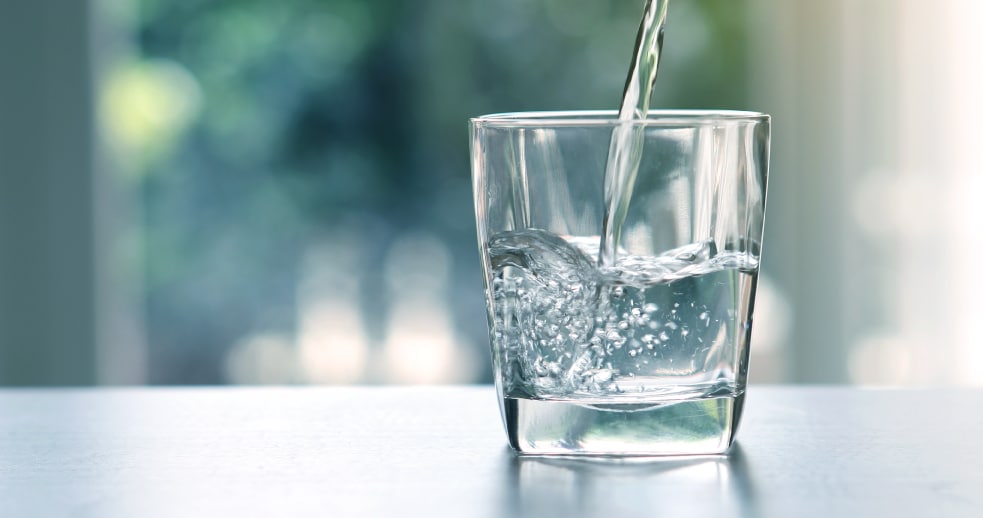We all know that water is essential to life. Not only does it make up a large part of our bodies, but we need to drink it every day to stay healthy. What many people don’t realize, however, is that the quality of the water we drink is just as important as the quantity.
Impurities in our water can lead to health problems, ranging from simple digestive issues to severe illnesses like cancer. That’s why ensuring that the water we drink is as clean and pure as possible is essential.
Why Does Water Quality Matter?
Every person on this planet needs water to survive, yet so many of us take it for granted. Here are just a few reasons why water quality is so important:
- Water is essential for our survival. We need it to drink, cook, clean, and more.
- Water quality impacts our health. Unsafe chemicals and microbes in contaminated water can cause severe illnesses and even death. Some of these contaminants, such as PFAS (commonly known as “forever chemicals”), don’t break down in the body and can have long-term health effects.
- Water quality affects ecosystems. Polluted water kills fish, wildlife, plants, and crops.
- Water quality impacts our economy. Contaminated water makes swimming, fishing, and other water activities unsafe, leading to tourism and revenue loss. It also impacts mechanical systems and the cosmetic health of our homes, causing us to spend more on upkeep, maintenance, and repairs over time.
What to Know About Water Testing
The United States Environmental Protection Agency (EPA) sets standards and regulations for many different contaminants in public drinking water. In addition, the EPA oversees all state water programs and implements the Safe Drinking Water Act (SDWA). The SDWA is a federal law that protects public drinking water supplies from being contaminated by hazardous chemicals or materials.
One of the main functions of the EPA is to set regulatory limits for contaminants in public drinking water. These regulatory limits are called Maximum Contaminant Levels (MCLs) and are based on the best available science. The EPA also monitors public water systems for compliance with these MCLs.
When a public water system exceeds legal limits for water contaminants, the EPA can take enforcement action. Enforcement actions may include issuing a violation notice, requiring a treatment plant to be shut down, or fining the system operator.
It’s important to note that some contaminates are not monitored, and some do not have limits set by the EPA, such as hardness. Hard water is water that has a high concentration of minerals, such as calcium and magnesium. These minerals can come from a variety of sources, including underground rocks and minerals, as well as runoff from the land surface.
Hard water can be bad for your home. The minerals in hard water can build up in your plumbing, causing clogs and potential damage. Hard water can also make it difficult to clean your clothes because the minerals can prevent soap from properly lathering.
What Does Monitoring Water Quality Mean?
Water is one of our most precious resources, and it is essential to monitor water quality so that we can make sound decisions on how to manage it. Monitoring provides the objective evidence necessary to understand the current state of water quality and how it changes over time. This information identifies problems and tracks progress in improving water quality.
In addition, monitoring helps identify potential threats to water resources and provide early warning of emergencies. Monitoring also benefits your home, ensuring you don’t have costly breakdowns of plumbing and HVAC equipment impacted by poor water quality.
What’s the Water Quality Like Around Here?
New Hampshire Water Quality
The Environmental Working Group (EWG) released its latest drinking water quality report for New Hampshire. The information is based on tests conducted by the water utilities in New Hampshire and provided to EWG by the utilities.
The report found that almost half of the utilities tested had chlorine, lead, and copper detections above health guidelines. Eleven percent of the utilities had detections of trihalomethanes (THMs) above health guidelines. THMs are a group of carcinogenic chemicals formed when chlorine is added to water to kill bacteria.
The EWG report also found that two communities, Concord and Hanover, have drinking water levels of chromium-6 that exceed the state’s public health goal. Chromium-6 is a carcinogen that has been linked to cancer in humans.
Massachusetts Water Quality
According to a report by the Environmental Working Group (EWG), drinking water quality in Massachusetts is generally good, but there are some areas where improvements are needed. The report is based on tests run by the water utilities in Massachusetts and submitted to EWG once complete.
The report found that most of the water utilities in Massachusetts met all the health-based standards for arsenic, disinfection byproducts, lead, and other contaminants. However, some utilities did not meet all the criteria, and there were some cases where levels of pollutants exceeded safe levels.
The EWG report also found that many water utilities in Massachusetts do not test for common contaminants, such as perchlorate and PFOA.
What is National Water Quality Awareness Month?
According to the National Water Quality Month website, “National Water Quality Month is an opportunity to focus on the importance of water quality and ways to protect it. Every day, we rely on water for drinking, cooking, bathing, and cleaning. We also use water for agriculture, industry, and energy production. Water is essential for life and a key component of healthy communities and economies.”
While most of us don’t think twice about our water quality, we should remember that not all parts of the world have access to fresh water. In fact, according to UNICEF, “2.5 billion people – more than a third of the world’s population – live in countries where water scarcity affects their daily lives.” That’s why we must make the most of the relatively small amount of freshwater we have in the United States.
Want to Improve Your Home’s Water Quality? Heritage Home Service Can Help
It is essential as a homeowner, and human being, to be proactive about the quality of your water. There are many ways to improve water quality, but the best way to ensure that your water is safe and healthy is to have it tested and understand what to do once you have the results. That’s where we come in. Heritage Home Service is here to help you know what you can do to improve your home’s water quality. Contact us today to discuss our water filtration services.

Financing Made Easy
When you choose Heritage, you can rest easy knowing that we provide straightforward options to help you budget for a complete solution that will last you for decades to come.
VIEW FINANCING OPTIONS
Complete Care Plan
With Complete Care, enjoy peace of mind knowing your home's plumbing, heating, cooling, and electrical needs are handled year after year—hassle-free, with added benefits.
VIEW PLAN







